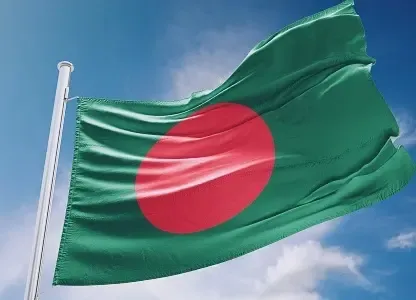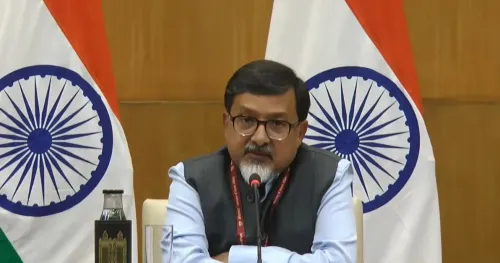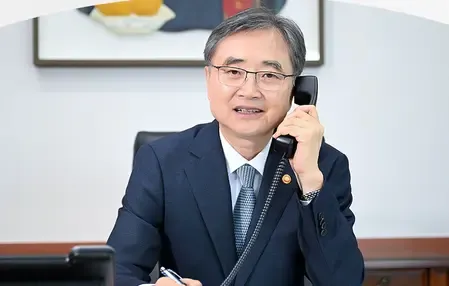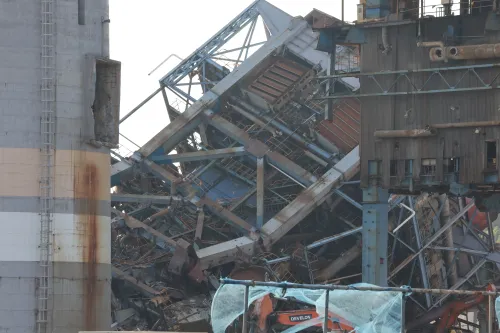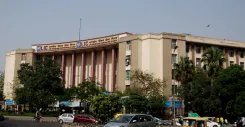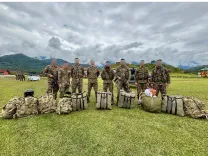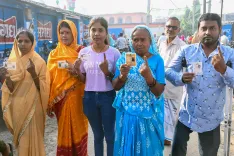Will Senior Diplomats of South Korea and Japan Engage in Strategic Dialogue This Week?
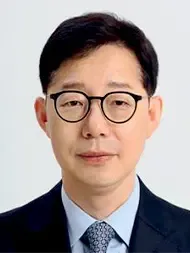
Synopsis
Key Takeaways
- Strategic dialogue set for Friday in Seoul.
- Focus on enhancing bilateral relations and addressing global challenges.
- First talks since leadership changes in both nations.
- Key participants: Park Yoon-joo and Takehiro Funakoshi.
- Discussions to cover a broad range of issues.
Seoul, Nov 6 (NationPress) South Korea and Japan are set to engage in vice-ministerial diplomatic discussions later this week, focusing on bilateral relations as well as regional and global challenges, as announced by Seoul's foreign ministry on Thursday.
The 16th strategic dialogue is scheduled for Friday in Seoul, under the leadership of First Vice Foreign Minister Park Yoon-joo and his Japanese counterpart, Takehiro Funakoshi, according to ministry spokesperson Lee Jae-woong during a press briefing.
"Detailed discussions will cover a broad spectrum of topics, including South Korea-Japan relations, regional scenarios, and international matters," Lee remarked, as reported by Yonhap news agency.
This event signifies the first strategic dialogue since leadership changes in both nations, with previous talks conducted in June of the prior year under different administrations.
Friday's discussions are crucial as Seoul and Tokyo aim to sustain the positive trajectory in bilateral ties that have seen substantial improvement over the past two years.
In their initial face-to-face meeting at the Asia-Pacific Economic Cooperation (APEC) summit in Gyeongju last week, South Korean President Lee Jae Myung and Japanese Prime Minister Sanae Takaichi acknowledged the necessity for enhanced cooperation moving forward.
This summit has alleviated concerns regarding the new Japanese leader's stance toward South Korea, particularly given her known hawkish approach to historical issues stemming from Japan's colonial rule over the Korean Peninsula.
Park and Funakoshi last convened in Tokyo in July for trilateral discussions alongside US Deputy Secretary of State Christopher Landau.
On October 30, President Lee Jae Myung and Prime Minister Sanae Takaichi reached a mutual understanding on the importance of deepening bilateral cooperation in light of rapidly evolving global dynamics during their first summit.
During their APEC meeting in Gyeongju, Lee reaffirmed his intention to collaborate closely with Japan.
“Given the swiftly changing international landscape and trade dynamics, it is essential for South Korea and Japan—two neighboring countries with shared attributes—to enhance future-oriented cooperation,” Lee expressed in his opening remarks.
He pointed out that both nations face numerous common challenges domestically and internationally, underscoring the significance of collaboration.
“By exchanging experiences and working together, I believe we can effectively tackle not just local issues but also global concerns,” he stated.
Takaichi characterized the two nations as "important neighboring countries" and expressed optimism for closer cooperation, particularly as this year marks the 60th anniversary of the normalization of their bilateral relations.
“I am confident that by building on the foundation established thus far, it will be advantageous for both nations to develop our relationship in a future-oriented and stable manner,” Takaichi conveyed through a translator.
She emphasized the importance of strengthening both the bilateral relationship and trilateral coordination among Seoul, Tokyo, and Washington amidst the current strategic climate.
During their approximately 40-minute meeting, both leaders opted to steer clear of direct references to historical conflicts. Instead, Lee noted that South Korea and Japan are "neighbors sharing the same front yard" and at times "experience emotional wounds like family," as stated by presidential spokesperson Kang Yu-jung to reporters.
The two leaders agreed that practical cooperation should continue to expand and pledged to enhance coordination in various sectors, including advanced technologies, economic security, and cultural and social exchanges, through active shuttle diplomacy between the leaders.

